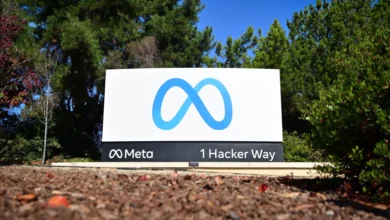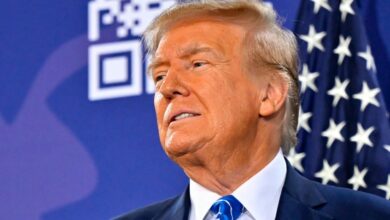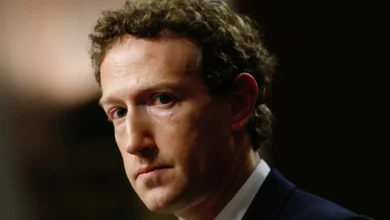As of November, the number of Egyptians using Facebook is estimated at just under 1.9 million, a figure that seems certain to keep climbing now that an Arabic version is available. And while that’s still just a tiny fraction of the estimated 300 million Facebook users worldwide, the website has become an essential part of daily life for Egyptian computer users.
In addition to connecting friends, sending messages, sharing personal pictures and updates, Facebook in Egypt is extensively used for political, religious and business purposes. Politicians, human rights activists and religious figures consider Facebook a natural tool for spreading their ideas, campaigns, and products.
“Facebook has done what [political] parties have failed to do,” says Gamal Ghitass, Editor-in-Chief of Loghat Al Asr Magazine (Language of the Age), a technology magazine. “Compare organizing a meeting traditionally in a political party to organizing a meeting through Facebook.”
Ramy Raoof, 22, a human rights activist and blogger uses his Facebook account to share videos and articles that catch his interest, as well as to notify friends of new blog posts. He describes the site as a “publicity tool” that enhances his ongoing political activities.
Some prefer to keep their friends’ list tightly controlled, while others clearly enjoy connecting with as many people as possible. Medical student Ahmed Zidan, 22, boasts more than a thousand Facebook friends and said he like to use the site to “publish my thoughts with the people I choose.”
But individuals aren’t the only ones in Egypt to embrace Facebook. The application is also used extensively by political organizations and businesses.
“The Muslim Brotherhood is the most active group on Facebook,” says Adel Abdel Sadek, a researcher specializing in Internet and IT studies at the government-run Al-Ahram Center for Political and Strategic studies.
Not to be outdone, the ruling National Democratic Party and other local political parties all have a presence of Facebook. Gamal Mubarak has inspired numerous Facebook pages, both supporting and opposing him.
For small businesses, Facebook represents a one-click marketing plan. “Facebook is far more effective and more organized than the word of mouth,” says Monica Ramez, a designer of silver-plated goods who says she exclusively uses Facebook to market her products.
With everything from very personal details to political activism taking place on the social networking site, the issues of privacy and security become major concerns.
According to Ghitass, “The National Security of Egypt is employing people for screening Egyptian Facebook accounts.”
Abdel Sadek agrees but said he believes the government, “screens only accounts of people under suspicion, not everyone.”
There are other concerns that extend beyond Egypt. Facebook is saving all the personal data entered into people’s profiles, even after it’s deleted. According to the updated terms of use, the company states that “removed content may persist in backup copies for a reasonable period of time (but will not be available to others).”
That’s enough to make some users extremely cautious about what kind of information they put on their profile. “Facebook is a property of a person, why would I give him my personal information?” said Amr Gharbeia, a 30-year-old web consultant who has a Facebook account but puts very little personal information on his profile.
Could Egyptians resist posting their personal details online? Some industry observers have their doubts. Abdel Sadek of Al-Ahram Center says cultural traits affect the way Egyptians use Facebook. “Egyptians love it cause they are in love with showing off."




